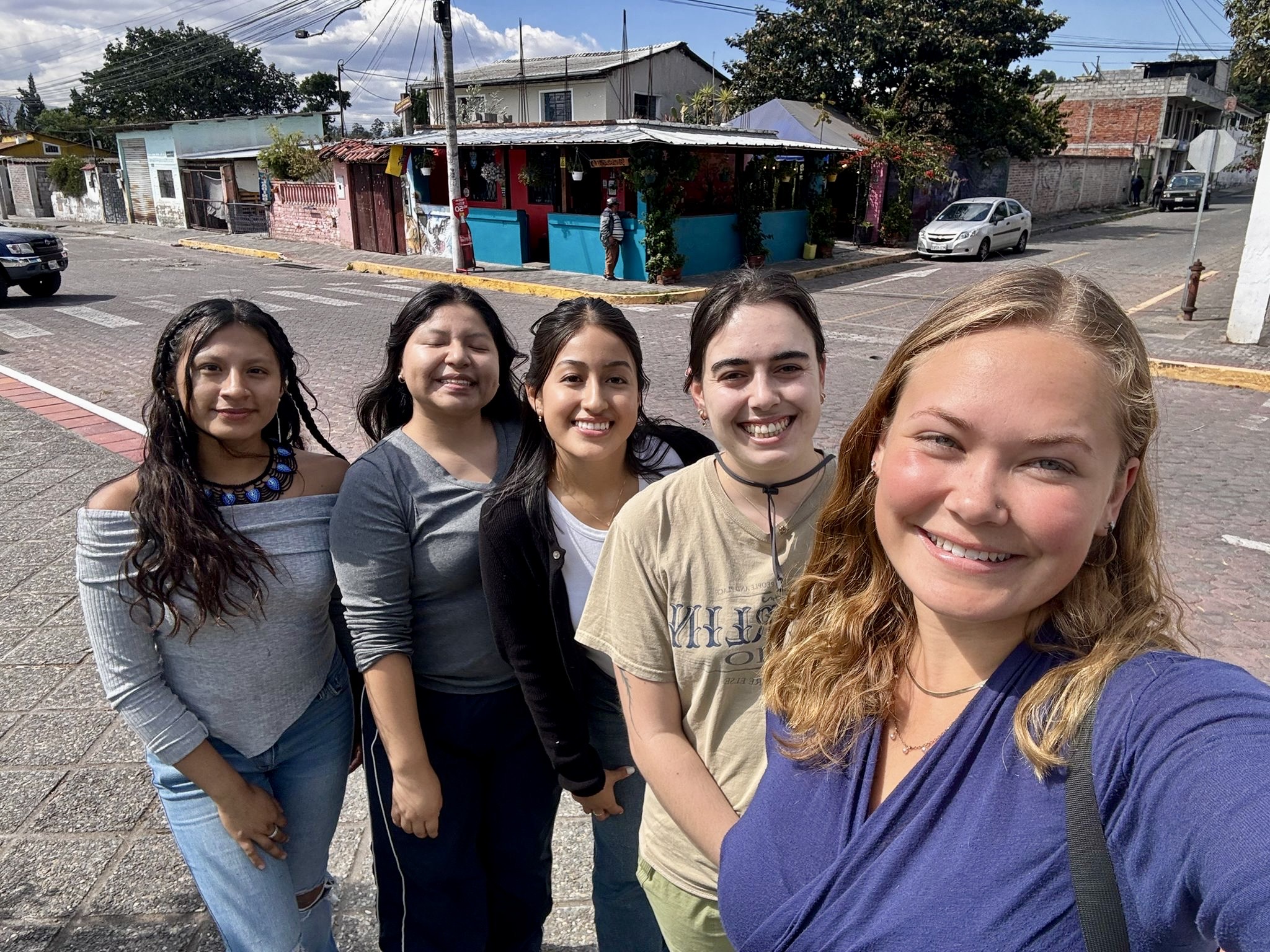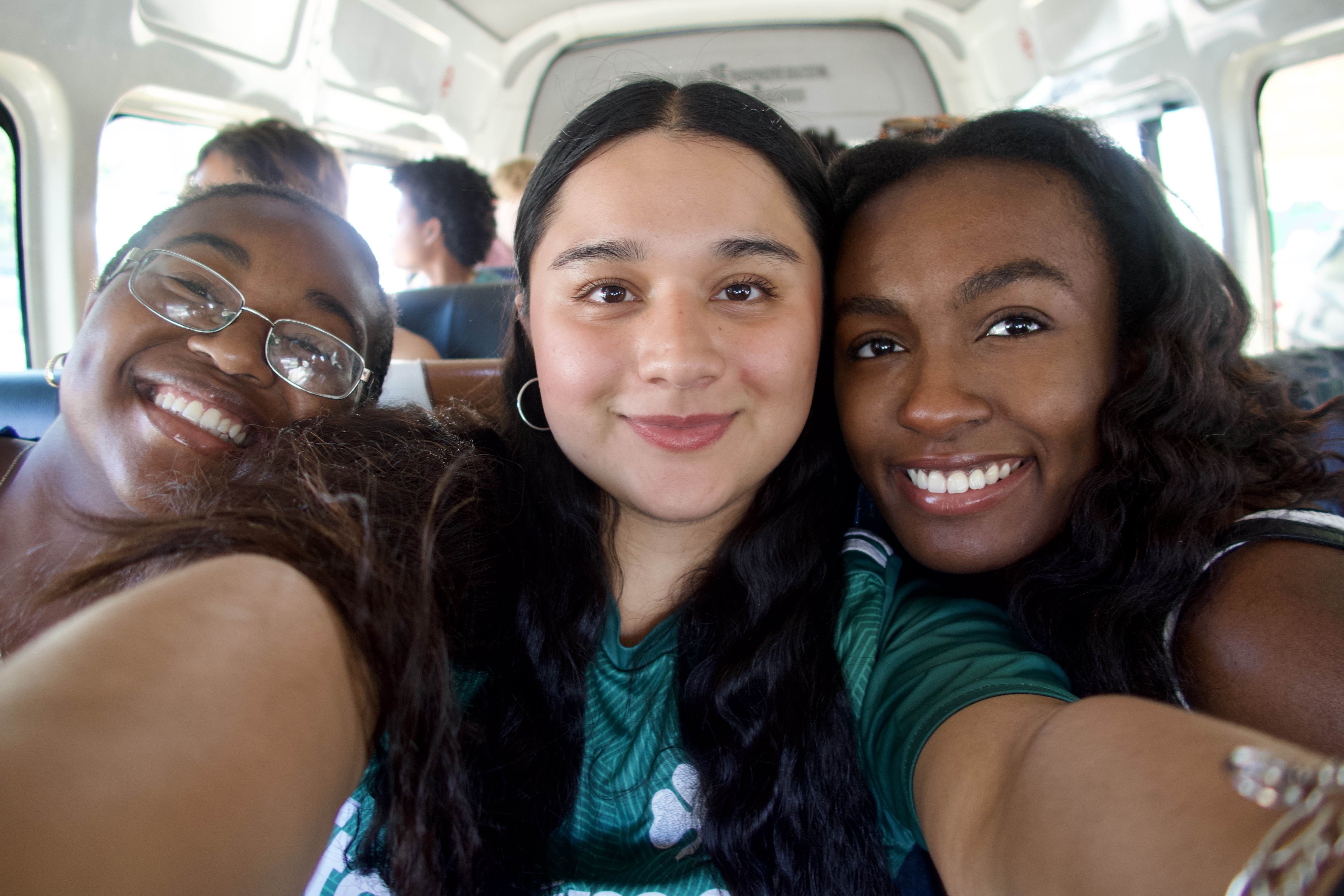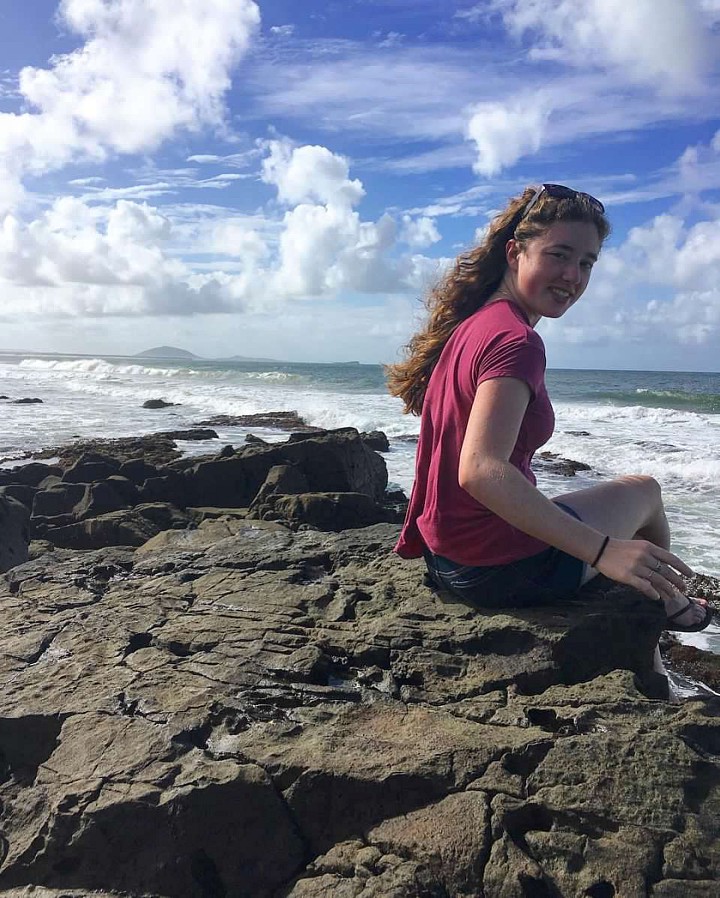Rooted in Identity: The Value of Remembering Who We Are
By: Jasmine Guaillasaca Quizhpi, CAS ’26

SA: Petition Program: Quito, Ecuador
Jasmine, one of the Semester Abroad Global Correspondents, shares her experience abroad during the Fall 2024 semester. Follow along with the group of correspondents on our blog and look out for their images on the @pennabroad Instagram feed.
No matter where we are in the world, there are certain aspects of ourselves that we cannot
escape. Not that we necessarily try to, but sometimes these truths become clearer when we take
some time to reflect. For me, the inescapable reality is my identity—more specifically, my
cultural position in society. If there’s one thing Ecuador has taught me, it’s that our identity,
whether cultural or otherwise, carries a profound richness that deserves to be valued as it is.
I embarked on a semester-long journey to Ecuador with a clear purpose: to learn more about my
people and my history. I envisioned my trip would bring answers to long-held questions, along
with a sense of comfort and belonging that I hadn’t fully experienced in the U.S. Instead, the first
few weeks resulted in disappointment, as I realized that despite the Indigenous cultures,
aesthetics, and iconography throughout the country, there was a widespread misconception of
Indigenous being. 
During an unexpected visit to the hospital, I lay in bed waiting to be treated, answering a series of questions for paperwork purposes: How old are you? What’s your address? Where were you born? What is your identity…? As the nurse read off a list of possible racial identities, I waited for her to finish so I could respond. “Indígena,” I answered, and a sudden silence filled the room. We locked eyes, and the nurse continued with the questions. Yet, a certain curiosity lingered, and later, when she attended to me, she kindly asked, “Where are you from that you identify as Indigenous? Don’t you live in the U.S.?” The question caught me off guard, but I understood the
source of her confusion.
Despite the physical distance from her native land, my mother, a Kichwa Kañari woman from
Cañar, instilled in my siblings and me a deep passion for our traditions and culture. Indigeneity,
on a global scale, varies. In Ecuador, rather than being defined by blood quantum, Indigeneity is
shaped more by cultural upbringing and ideology. For that reason, I have always understood
myself to be a Kichwa Kañari woman. However, this understanding wasn’t clear to either the
nurse in the hospital or the Uber driver who stated that Indigenous professionals don’t face
systemic oppression.
Surprisingly, I encountered the same arguments and questions that I faced in the U.S. Isn’t a country that includes Andean cosmologies, such as Sumak Kawsay, and grants nature constitutional rights supposed to be more understanding and open to Indigenous cultures? Rather
than feeling a sense of initial comfort, I found myself needing to justify my identity. Yet, this overwhelming urge to explain my identity and the history and existence of Indigenous peoples was overshadowed by a different feeling that arose from my interactions with a wide range of
Indigenous peoples.
During my stay in Quito, I was placed with a family from Otavalo. This experience allowed me to replace those feelings of not belonging with a stronger sense of pride. Interacting with them daily gave me the opportunity to learn more about Kichwa culture and cosmology. Through
exchanging stories about handicrafts, gastronomy, and oral history, I was able to find the comfort I had been seeking from the start. Listening to Kichwa Otavalo music was a surreal experience, reminding me of the beauty of our Kichwa language as it mixed with the beats and sounds of the drum, violin, and flute. With the Santillán-Perugachi family, I learned more about Kichwa Otavaleño culture, but, most importantly, I relearned more about myself.
I was never ashamed of my identity, but I was disappointed that I felt a need to explain and
defend my identity. My interaction with my host family guided me to a path towards a
reaffirmation of the pride I have in my identity. Let my experience remind you that no matter
where you find yourself, don’t forget the value and uniqueness you possess.